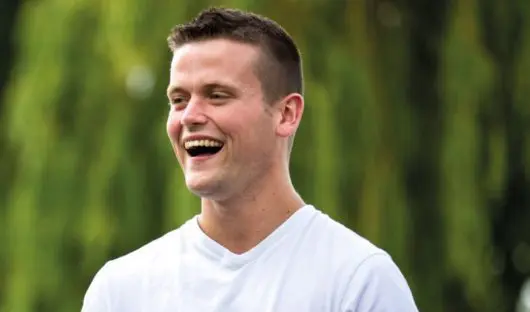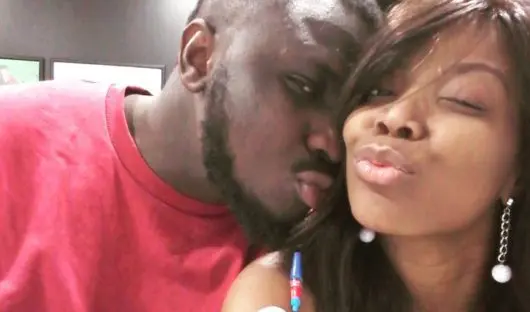Making decisions about fertility: Conor’s experience
Conor is a psychology graduate living in Omagh, Northern Ireland. After being diagnosed with sarcoma aged 17, he’s used his experience to advocate for other young people facing cancer. In this blog, he talks about his decision to have fertility preservation treatment.
 I was diagnosed with an unusual kind of cancer when I was 17 – this was about five and a half years ago at the time of writing. Surgery and chemo (Dox-Ifos) meant it didn’t get to kill me, but death, I suppose a bit like the tumour itself, steals pieces of you as it progresses. It overrides everything else in your life and makes you confront realities much sooner than you’re prepared to. Like an exam you never revised for, but the exam is less “Do these sums” and more “How certain are you really that there’s a life after death?” It eclipses your life and exhausts you on a level that’s hard to describe.
I was diagnosed with an unusual kind of cancer when I was 17 – this was about five and a half years ago at the time of writing. Surgery and chemo (Dox-Ifos) meant it didn’t get to kill me, but death, I suppose a bit like the tumour itself, steals pieces of you as it progresses. It overrides everything else in your life and makes you confront realities much sooner than you’re prepared to. Like an exam you never revised for, but the exam is less “Do these sums” and more “How certain are you really that there’s a life after death?” It eclipses your life and exhausts you on a level that’s hard to describe.
Not an ideal mindset for level-headed, productive planning for a future family. It’s common for many chemotherapy drugs to affect fertility, one of many side effects you’re willing to roll the dice on when it’s life or death. You find yourself accepting major long-term consequences for better odds of survival in the now.
Yet for some reason, when I was asked if I wanted to freeze my sperm, I initially said no. Which I now feel is daft. If sacrifices are necessary, make them, but fertility preservation can greatly improve your chances of having children in the future. Why not jump on the opportunity? I hope most readers who have been in my position can empathise with me, but this might seem strange to those who can’t relate. I was able to face cancer, and opted to sit through months of optional chemo, but visiting a fertility clinic felt so unfathomable to me. I hope I’ll be able to help you better understand why this was, and how I was able to change my mind.
This is a surreal position to try and imagine and I can only talk from personal experience. For context, when I was on the run-up to getting chemo I was already cancer free and the chemo was simply precautionary. Therefore, planning for how treatment may affect me in the long term became the top priority.
I want you to take a moment with yourself and honestly reflect on how you would handle the topic of fertility in this situation: You’re in your late teens and have come to terms with the idea of dying. You’re not expecting to see your 18th birthday. But then you get word, surgery was a total success! You’re going to live! Obviously, this is brilliant news. Until you realise how much you have to alter your thinking. You have to reassess who you are, and how much of your ‘old self’ you’ll ever be able to reclaim.
You have a lot of recovery to do, physically and mentally. Everyone sees you differently. It’s an uphill battle reaffirming your sense of identity, dignity, and place in the world. After some time of relearning who you are outside of the context of scans and symptoms you finally start to get your feet under you. It’s at this stage that you’re told you’ll need chemo. Not only that, but a stranger in hospital attire will ask if you want to ejaculate in a cup. “No, person I have never met, I do not want to ejaculate in a cup. Sorry to disappoint.”
You sacrifice a lot to cancer and, while I’m sure some people feel stronger for having overcome such an obstacle, I felt mentally destitute. I didn’t have the self-esteem or the ‘drive’ to think things through objectively. I want kids, and to the best of my memory always have, but totally avoided any discussion that might help me secure a future with children.
Even now I still can’t be entirely sure why I was so reluctant at first, and what exactly made me change my mind. I think it took me a while to catch up with the reality of my situation, that I would survive, and how that meant unlearning the idea of long-term sacrifice = short-term gain. It also took me time to feel secure enough to plan for the future. I was so fixated on short term planning that defending my self-esteem in ‘the now’ was seen as a higher priority than defending my vision of the future with children. There’s definitely a lot of complicated emotion that went into my decision making around fertility preservation, but ultimately a sense of security, in myself and my future, was the biggest factor in pushing me to go for it.
So I took the plunge. The embarrassment and discomfort in the short term was worth it; I’d have plenty of time to get over it.
“No shame in going to a fertility clinic - unless it’s with your mum. I remember the clinician and he was like, ‘Oh yes it’s Conor and … his mother?!’ He looked over his paper at me. I clearly looked like I wanted to die. My mum tried her best not to look embarrassed. He looked over the top of his glasses and said, ‘How embarrassing for you!” The man handles sperm for a living and looked at me and thought “Oh how embarrassing’...”
What’s it like to go to a fertility clinic as a teenager? Conor and Daniel chat about their experiences in episode 2 of The C Tea, our podcast in collaboration with Cancer Fund for Children in Northern Ireland. Listen on Spotify.

